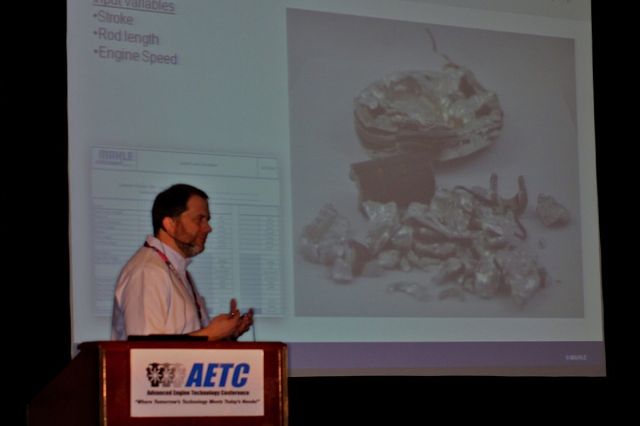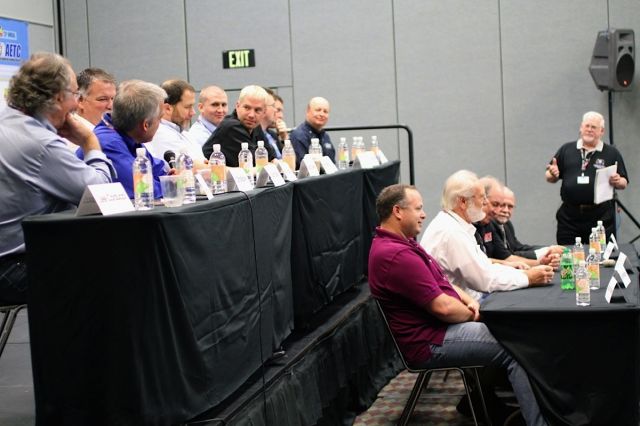If you wonder why manufacturers demand to know so much about your engine when ordering custom pistons, you should have been in the audience when Brad Green of Mahle offered the final presentation at the Advanced Engine Technology Conference (AETC).
“We have a data sheet, and there are a lot of blanks,” says Green. “We’re making a single piece for an entire system, so we ask for a lot of information.”
Connecting rods are of particular interest, mostly for clearance issues. Mahle wants to know the length, thickness above the pin, section width and all other dimensions.
Factors that also come into play for piston design include ring-groove calculations, clearing the crankshaft counterweight, dish/dome volumes and, of course, compression ratio.
“We also need to know the engine rpm,” stresses Green, while showing a totally disfigured piston came back from a customer who fudged on the engine details, which made Mahle’s piston inertia calculations incorrect.
Assessing the circlip lifting speed is another important considering that requires honest input from the customer.
“It’s something that we have to evaluate with each program,” says Green.
Mahle can also take a customers camshaft data and combine it with modeling programs to determine the proper valve-relief depths. Computer models also help with designing the correct pin size and placement. For precise FEA, Mahle requires even more data, including cylinder pressures, horsepower, torque and intended durability cycles.
From there, Mahle will determine the piston design, material, coatings and other features necessary to meet a customer’s needs.
In closing out the conference, all of the presenters were available for panel Q&A with the audience. The most popular topic was the common causes of engine failure. Highlights of that discussion include:
- Number 1 is dirt
- Bearings show first hand any debris left in engine, such as metal shavings after boring
- Rod bearings are always the first to go if an engine is deprived of oil
- Failure comes from assumptions, e.g., assuming your torque wrench is calibrated
- Not reading instructions
- Listening to a buddy or trusting an Internet forum instead of following the manufacturer’s advice
- Cell phones
Yes, that last one generated numerous comments and personal stories. As one panelist quipped, “It’s a great way to lose track of where you left off.”



















